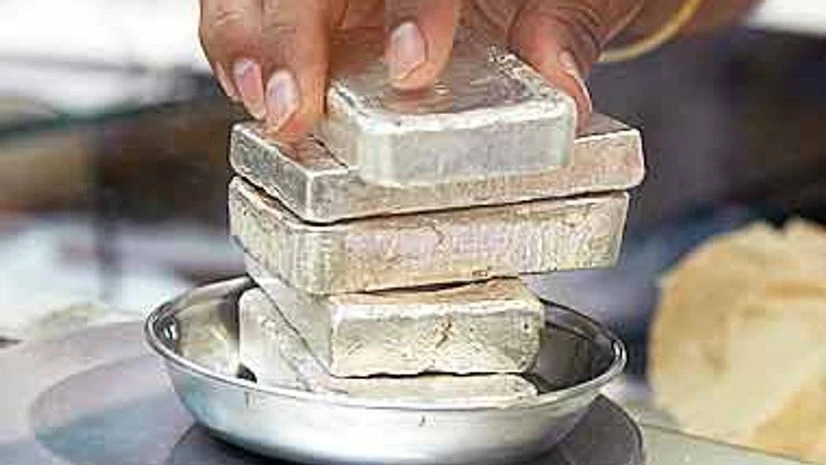The fate of Ahmedabad–based National Multi Commodity Exchange (NMCE) hangs in the balance over raising enough funds to meet the regulatory norms.
Immediately after taking over this charge from the erstwhile regulator, the Forward Markets Commission (FMC), the Securities and Exchange Board of India (Sebi) fixed the minimum net worth required for a national comex at Rs 100 crore. With Rs 60 crore of net worth for several years, NMCE is the only national exchange which does not meet this criterion.
The other two, Multi Commodity Exchange (MCX) and National Commodity and Derivatives Exchange (NCDEX), enjoyed a total net worth of Rs 1,357 crore and Rs 354 crore, respectively, as of June 30. NMCE faces problems in raising more funds due to monetary irregularities by its original promoter, Kailash Gupta, managing director of Neptune Overseas, which still has 30.1 per cent stake in NMCE.
NMCE was the first exchange to obtain the national commodity futures accolade, in 2002. However, it failed to get the first-mover advantage. While MCX enjoys 86 per cent of market share, NCDEX has nearly 12 per cent. NMCE, along with the other three regional exchanges, have the rest.
“We have initiated talks with banks and financial institutions to raise funds to meet the regulatory guidelines. We are hopeful of achieving the required level very soon,” said Anil Mishra, managing director of NMCE.
There are other hurdles. FMC, the erstwhile regulator, held Gupta “not fit and proper” to run an exchange at least five years earlier, for gross violation of regulatory guidelines. FMC had ordered Gupta’s Neptune Overseas to divest its stake to two per cent or exit the exchange fully. Since then, Gupta has been fighting this in various courts of law and the 30.1 per cent of Neptune Overseas' stake remains in an escrow account.
FMC also directed that Rs 28 crore be recovered from Gupta, allegedly spent on his personal expenses but shown in the account books of NMCE. The latter moved the Company Law Board (CLB), seeking a direction for showing this amount as business loss. Alternatively, for the 30.1 per cent stake of Neptune Overseas to be extinguished to benefit the existing shareholders or a sale of these shares to bring in new ones.
An NMCE official says potential investors ask questions like who would benefit if CLB orders extinguishing of Neptune’s stake — existing investors at the time of the financial irregularities or new ones, too? “Unless a clear direction is given by CLB, attracting new investors is difficult,” said Mishra.
Existing investors include a number of state and central government companies —Central Warehousing Corpo-ration, National Agricultural Cooperative Marketing Feder-ation, Gujarat Agro Industries Corporation, Gujarat State Agricultural Marketing Board and National Institute of Agricultural Marketing.
Immediately after taking over this charge from the erstwhile regulator, the Forward Markets Commission (FMC), the Securities and Exchange Board of India (Sebi) fixed the minimum net worth required for a national comex at Rs 100 crore. With Rs 60 crore of net worth for several years, NMCE is the only national exchange which does not meet this criterion.
The other two, Multi Commodity Exchange (MCX) and National Commodity and Derivatives Exchange (NCDEX), enjoyed a total net worth of Rs 1,357 crore and Rs 354 crore, respectively, as of June 30. NMCE faces problems in raising more funds due to monetary irregularities by its original promoter, Kailash Gupta, managing director of Neptune Overseas, which still has 30.1 per cent stake in NMCE.
NMCE was the first exchange to obtain the national commodity futures accolade, in 2002. However, it failed to get the first-mover advantage. While MCX enjoys 86 per cent of market share, NCDEX has nearly 12 per cent. NMCE, along with the other three regional exchanges, have the rest.
“We have initiated talks with banks and financial institutions to raise funds to meet the regulatory guidelines. We are hopeful of achieving the required level very soon,” said Anil Mishra, managing director of NMCE.
There are other hurdles. FMC, the erstwhile regulator, held Gupta “not fit and proper” to run an exchange at least five years earlier, for gross violation of regulatory guidelines. FMC had ordered Gupta’s Neptune Overseas to divest its stake to two per cent or exit the exchange fully. Since then, Gupta has been fighting this in various courts of law and the 30.1 per cent of Neptune Overseas' stake remains in an escrow account.
FMC also directed that Rs 28 crore be recovered from Gupta, allegedly spent on his personal expenses but shown in the account books of NMCE. The latter moved the Company Law Board (CLB), seeking a direction for showing this amount as business loss. Alternatively, for the 30.1 per cent stake of Neptune Overseas to be extinguished to benefit the existing shareholders or a sale of these shares to bring in new ones.
An NMCE official says potential investors ask questions like who would benefit if CLB orders extinguishing of Neptune’s stake — existing investors at the time of the financial irregularities or new ones, too? “Unless a clear direction is given by CLB, attracting new investors is difficult,” said Mishra.
Existing investors include a number of state and central government companies —Central Warehousing Corpo-ration, National Agricultural Cooperative Marketing Feder-ation, Gujarat Agro Industries Corporation, Gujarat State Agricultural Marketing Board and National Institute of Agricultural Marketing.

)
